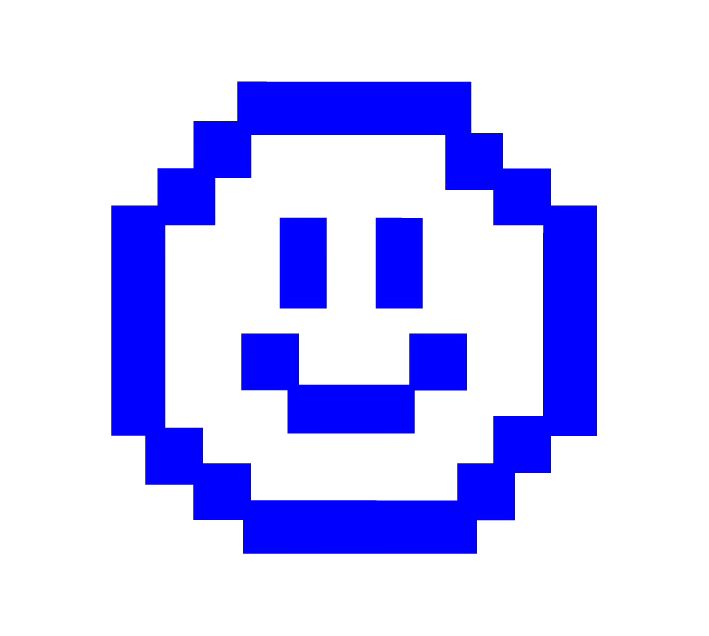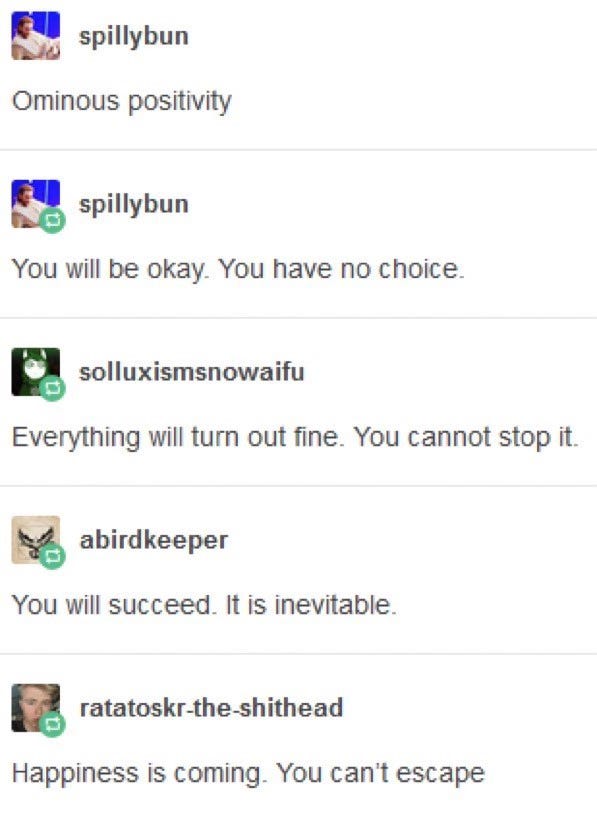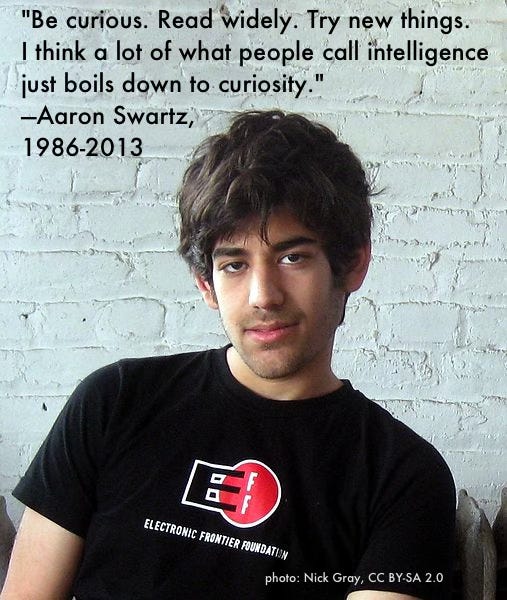The Internet is worth protecting
Digital citizenship and Internet activism during the Broligarchy era
Key terms & principles to keep in mind:
Media Smarts defines digital citizenship as:
the ability to navigate our digital environments in a way that's safe and responsible and to actively and respectfully engage in these spaces.
In the same article, they state that “it takes just 10 percent of the people in a community to set its values”.
Dr. Mark Ribble, the author of Digital Citizenship in Schools, Nine Elements All Students Should Know, developed three principles to guide digital users:
Respect: elements of etiquette, access, and law are used to respect other digital users
Educate: elements of literacy, communication, and commerce are used to learn about the world
Protect: the rights and responsibilities, security, and the health and wellness to keep users safe in the digital and non-digital world
I’ve been a digital citizen for as long as I can remember. At 12 years old I was knee-deep in multiple fandoms across Tumblr (Directioners STAND UP!), watching as many felt the first novel rushes of Internet fame. At the time, Tumblr was seen as a platform primarily used by artsy C-list celebrities to gain Internet cred, or clout as we now refer to it. Yet, the appeal of Tumblr for many (including myself), was the platform’s unique way of fostering community, which felt deeply embedded in its ethos. In the early 2010s fandoms ruled Tumblr, and my formative years were spent marvelling at the levels of connection inspired through laggy pixels and customizable HTML themes.
If social media parallels a never-ending popularity contest, OG platforms like Tumblr and Reddit, which prioritize communal discussions and the sharing of unfiltered thoughts, are akin to an intimate dinner with loved ones.
When I first got ahold of it, there was something inherently magical about the Internet. It had a hold over me that I still struggle to describe; I didn’t feel so alone when I logged onto the Internet. In those early days—when profiting off anything you posted online was but a distant, hazy dream—we made content for the sake of creation, not consumption. It was a sanctuary for outcasts whose bids for connection were met with intrigue instead of insult. Many of us who flocked to cyberspace as young children couldn’t possibly have predicted how much harm the Internet would soon cause.
The quasi-underground culture of the Internet is deeply embedded in my identity—I grew up wasting away in front of a computer, interacting with strangers who shared similar interests, and who displayed appreciation for my immaturely shared writing and poorly made music videos (don’t ask). My community existed primarily online, so my identity quickly became entangled in the pixelated world which promised to free me from the pain and suffering of ‘the real world’. Because of that, I remain forever bound to the belief that the Internet is a place worth protecting, worth nurturing. The Internet is a vast, untamed space, where beliefs and ideologies collide, where trolls—whose only motive is to provoke insurgence in the name of “free speech”—frequently spawn and red pills are hiding behind every corner.
But, it is a world that we, the digital citizens of cyberspace, created, a world we continue to govern and care for. Maybe out of habit, or maybe because deep down we know just how precious this world truly is.
However, that sentiment (that blind optimism for a better future) may now seem outdated—a foreign notion from a time long ago. Now, the Internet is owned by tech billionaires with personal agendas and political preferences. Neoliberalism and the ‘Broligarchy’ (a concept coined by
last summer) have attacked the open-source nature of the Internet, alienating and commercializing our entire digital presence to optimize corporations’ profits and line the pockets of the 1%.
These tech billionaires have spent decades working tirelessly to create a universally dull Internet experience, stripped of the authenticity and enthusiasm we once held for an open-source community—two principles that Tim Berners-Lee, the inventor of the World Wide Web (what we refer to as "the Internet"), championed when he released “the technology into the public domain without patents or fees” to allow “the web to grow rapidly and become accessible to everyone with an internet connection”. Berners-Lee chose to prioritize the open sharing of information over financial success because he believed the public deserved barrier-free access to the Internet. He acutely understood the power and transformative potential of the technology he held in his hands.
His confidence in the public, and excitement for the web, resonated like tiny ripples through the fragile, cloud-supported network—it was an exhilarating time, and many early adopters shared this sentiment. As an eternal participant of the Internet, I continue to feel drawn to it because I share similar visions to those who fought for a free and open web.
With the oversaturation of social media platforms and the endless stream of AI-generated content, it’s easy to forget what the telos of the Internet originally was. These early visions have been overthrown by corporate greed and political powerplays.
In light of recent events, I find myself thinking a lot about Aaron Swartz. He was among the first wave of prominent Internet activists who utilized the Internet and digital media as a key podium to mobilize the masses and inspire political action. In his 2008 Guerrilla Open Access Manifesto he imagined a world of open, public access to all information— a world he felt so passionately for that he was willing to risk his own freedom to bring it to fruition.
“Information is power. But like all power, there are those who want to keep it for themselves. The world’s entire scientific and cultural heritage, published over centuries in books and journals, is increasingly being digitized and locked up by a handful of private corporations.” -Aaron Swartz, Guerrilla Open Access Manifesto
While watching The Internet’s Own Boy (2014), a documentary about Swartz’s life, I was struck by how intertwined his life story is with the Internet, and notably, by the public response to his death, particularly by digital citizens.
If you’re unfamiliar with the vastness of online social ecosystems, it’s important to understand that the Internet is a nuanced and expansive space, complete with its mainstream cultures and subcultures. There are tiny corners of the Internet that are comparable only to a grimy, underground metropolitan music scene, where Creatives flock to share memes and endless "close friends" stories. Other corners feel like stumbling through a door into a dark alley at night. Much of what exists here remains unknown to the general public. It’s a social ecosystem as much as it is an informational one.
People feel connected to those they’ve never met— they have favourite influencers and celebrities to whom they feel deeply connected, and we now know just how powerful parasocial relationships can be. The outcry from every tiny corner of the web after Aaron Swartz's death was deafening. His zealous fight in manifesting a world of open-source, free information, left a lasting impact on the Internet, for he never faltered in his mission of liberating the public. Tragically, Swartz committed suicide after being charged with downloading academic journal articles from JSTOR, facing the possibility of a lengthy prison sentence. At the time, the consensus across the Internet was that Swartz’s prosecution was disproportionate and unjust, and his untimely death sent shockwaves through the entire digital sphere.
Although the Internet has become deeply woven into nearly every aspect of society, it still clings, aloofly, to its origins as an endless, borderless realm suspended among the clouds. It feels disconnected from our physical selves, as if our digital identities exist separately, untethered from who we are in ‘the real world’. In that way, the Internet resembles a kind of fairyland we slip into—a place where we belong. And whenever humans feel a sense of belonging, pride inevitably follows. Whatever we are proud of, we seek to protect.
The Internet isn’t confined by borders; we choose where to go and who to be. For many, it’s the only place where they feel truly safe, protected—heard. Yet, we are witnessing our digital freedoms being stripped away, bombarded from every direction, drowning beneath the relentless tide of content and advertising. We’re losing our grip on the Internet’s trajectory, watching as it shifts from a vessel of connection and salvation to something darker—an instrument of control, even harm.
wrote a brilliant piece in his newsletter , about online hope, stating, “The most powerful group on the internet is everyday people…the internet is ultimately user-generated.” He echoes a truth many of us digital natives know to be true, “The internet radically changed several times before,” so we should expect it to change again.“Platforms and the posts on them belong to the people. The forces have kept or will keep us from exercising full, direct control — whether coercion, censorship, AI agents, the difficulty of mobilizing at scale, fragmentation into separate niches — are obstacles to be surmounted rather than walls that can always block forward progress.” -
, don’t log off
Aidan’s piece ultimately outlines why we, as digital citizens, should hold out hope for the future of the Internet, arguing that now is not the time to log off. As tech monopolies attempt to gentrify the Internet and push us out of the spaces we’ve created, it’s never been more important to stay engaged with the communities you’ve fostered here. As important as it is to get out into the world, we can’t discredit how important a tool the Internet is, and we can’t bow out—it’s our job to protect it.
The end of his article poses an important question that I urge all of you to sit and ponder for a minute: “What are the responsibilities and opportunities that arise from this moment, and where can we direct our attention, dollars, and platforms to most effectively protect our people and planet?”
The question struck a nerve. McLuhan’s media theories solidify that the Internet will never cease to exist in our world; every new medium (an extension of man) reshapes the human experience by extending a novel sense of capability, fundamentally altering how we interact with the world. If the Internet disappeared tomorrow, it would feel like our world had ended, because, in a way, it would have. Our understanding of existence would be shattered, society would fundamentally alter and we would struggle to rise from the ashes.
You know as well as I do that the Internet is worth protecting, worth fighting for—and as users, and digital citizens, we must begin to act. We are the glue that holds the entire thing together. Whether that’s moderating an online community you’re a part of, reporting hateful comments, or refusing to use certain apps because of its company’s ethos, there are a million small ways each of us can step up as digital citizens.
The smell of revolt is in the air, and I suspect over the next few years how we experience the Internet will fundamentally change.
It seems bleak right now, tough times always do. But, we are not powerless. Together, as digital citizens, we can work toward a brighter future—we can fight to change cyberspace for the better.
In an era of doomscrolling and neverending bots, where we watch far-right ideology sweep across our platforms and into the minds of society’s most impressionable, it seems naive, stupid even, to remain optimistic. Right now, logging on can feel like coming up to bat for a losing team. Though you have to admit, it feels rebellious to remain hopeful, despite it all. Everyone loves an underdog.
I remain hopeful because I know the world is not inherently a bad place, I know most people are not bad people, they’re just afraid of being left behind by the pack, and for them, remaining in the past—subscribing to outdated ideologies and defending hateful power in the name of self-salvation—however destructive, is more comforting than facing the unknown norms of the future. But we can’t let fear steer the direction the Internet is heading in.
Now is not the time to drown in hatred just because the voices ruled by fear are the loudest. Though it seems like we can’t stop listening to them. We listen because they don’t shut up, often finding ourselves tuning in because there is always something new to gawk over, directing our web traffic to their madness in an attempt to stay informed and negate FOMO. We play right into their trap—our attention is what they’re after, it’s what’s most valuable. We choose where we direct our attention, yet we keep pointing it straight at them. So, as digital citizens, one small way to step up, to choose to fight for the Internet (and democracy), is by directing your traffic to websites that work to foster community and add value to the ecosystem.
I don’t know whether this is a battlecry or a truce. Naively, I choose to believe that all of us—however different our ideologies and personal beliefs—are more similar than we may think. I choose to believe underneath it all, most people are good people, or at least they’re trying to be.
The Internet is our global town hall—a common stage that connects us all and allows us to experience a shared sense of reality. We can’t give that up, especially not now. So, it’s time we start thinking about our responsibilities as digital citizens and how we can show up to support our digital communities and protect the future of the Internet.











you had me at directioner <3 1D and the online fandom spaces made me a better, hopeful teenager. so i could never ever truly give up on the internet, no matter how many times i delete these apps from my phone. feels like as an adult, i owe it to the teenage girl in me to stick around and help make it better, you know?
I absolutely loved reading this. I've been reading so many thought pieces (and just thoughts in general) discussing leaving the internet and all the platforms now that they've become hostile, but something just felt wrong about this, like we're letting them win. It's so important to stay united, build communities on here, and be loud and fight for our right to be present here too. Thank you for writing this <3